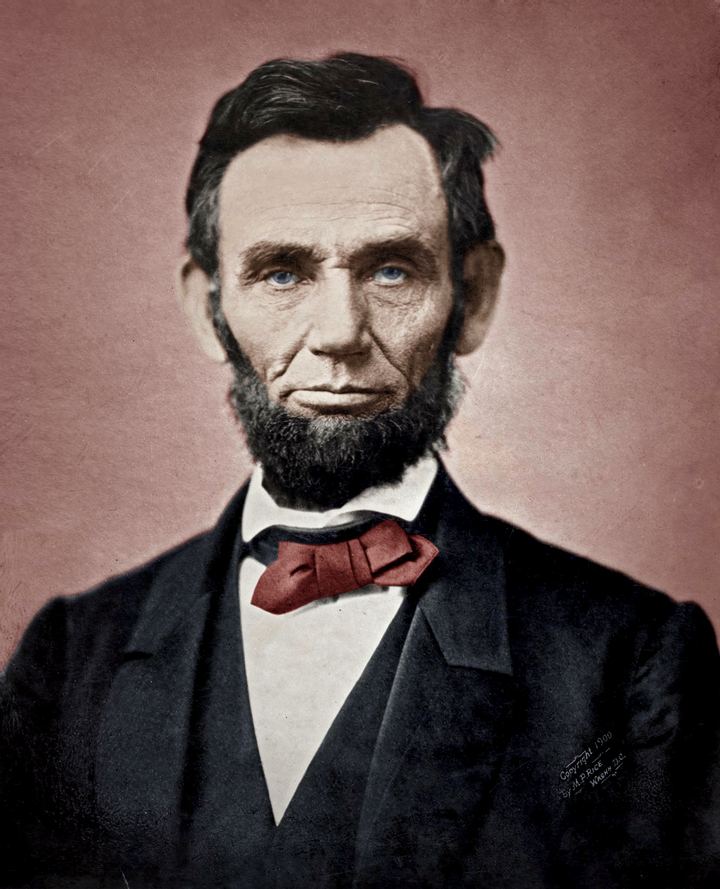Spring 2008
A Lincoln for Every Altar
– The Wilson Quarterly
Americans of almost every religious persuasion claimed Abraham Lincoln as their own.
A famed 19th-century mystic reported that President Abraham Lincoln levitated at a séance in Georgetown. Christian Science founder Mary Baker Eddy believed that the martyred president became a proponent of Divine Healing even before she discovered it. A California guru announced that the 16th president had once been a yogi in the Himalayas. Cardinal George Mundelein of Chicago identified the Great Emancipator as a closet Catholic. Episcopalians, Baptists, and Presbyterians (whose pews he occasionally warmed) have also claimed him as one of their own, as have atheists and Ethical Culturalists.
There has been an especially great hunger to believe that the martyred president was a devout and orthodox Christian, writes Andrew Ferguson, senior editor of The Weekly Standard and author of Land of Lincoln: Adventures in Abe’s America (2007). Lincoln’s secretary wrote that he “talked always of Christ, his cross, his atonement.” A clergyman confirmed the secretary’s account and added an enticing detail: Lincoln’s last words to his wife had been, “We will visit the Holy Land and see those places hallowed by the footsteps of the Savior.” But Honest Abe never joined a church, and his purported “last words” about Jerusalem were delivered as he watched a trashy play at a slightly disreputable theater on Good Friday.
Simultaneously approachable yet remote, Lincoln had a personal magnetism that drew people to him, but his interior remained hidden, Ferguson writes. He made statements that seemed to reveal him as both a believer and a skeptic.
His law partner, William Herndon, said that Lincoln’s response to the majesty of Niagara Falls was a deflating “Where in the world did all that water come from?” But in a note found after his death, Lincoln mused that he saw in the falls some immensity that human reason can’t explain. According to the freethinker Herndon, Mary Lincoln, the president’s widow, said he had “no hope and no faith,” and was a “religious man” but not a “technical Christian.”
Lincoln developed his own civil religion, Ferguson believes. In another note found after his death, the agonized president grappled to understand why the carnage of the Civil War continued when God “could give the final victory to either side any day.” Lincoln’s eventual answer, delivered at Gettysburg in 1863 and in his second inaugural address, was that the Union embodied the ideals of human liberty and equality, and the war was a test of whether these principles, as Ferguson puts it, “could be safely entrusted to human institutions.” We will never know for sure whether Lincoln believed in Jesus, his resurrection, the forgiveness of sins, or biblical truth, Ferguson concludes. But the uncertainty has made Lincoln “our common property,” appealing to believers and skeptics alike. Yet it also means something “definable and concrete.” Lincoln believed that America was the “carrier of a precious cargo.” We assent to Lincoln’s creed, Ferguson says, “when we think of ourselves as Americans.”
* * *
The Source: "Lincoln and the Will of God" by Andrew Ferguson, in First Things, March 2008.
Photo courtesy of Flickr/Juan Garcia
